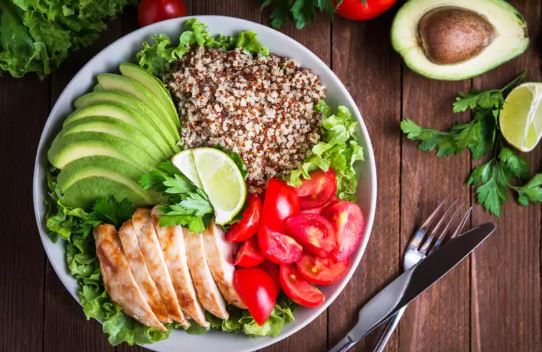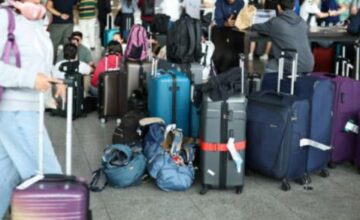
The basic question which bothers everyone going on a diet for the first time is what they should eat and what they should avoid.
Every form of dieting has its own set of rules, which is important to follow when trying it. The same is with One Meal a Day or OMAD diet.
In this diet, you are allowed to eat only once in a day, but even that one meal needs to be well planned.
It is believed that eating one big meal in a day helps in rapid fat loss, improves body composition and has numerous other health benefits.
So, here is a list of food items you should have and avoid if trying OMAD diet:
1. Get enough protein
Since you are allowed to eat only one meal a day, you do not want to consume only calories and fat, other nutrients are equally important. Try to include protein in your diet. The amino acid present in protein helps to build lean muscle. Try to include 0.7-1.0 g/lb of LBM of protein. Eat animal-based food like meat, eggs, fish, chicken, organ meats and cheese. Most of the nutrients required by our body can come from these sources. So, your plates should contain these food items in a large quantity.
2. Healthy fats are also important
When on OMAD diet, decrease your fat intake by 20 to 30 percent. But do not decrease it further as it will down regulate your hormones and thyroid level. 100 to 180 grams of fat should be present in your diet to stay fit and healthy. Eggs, fish, avocados, olives, olive oil, coconut oil, MCT oil, nuts, and seeds are good when you are on OMAD diet. Just make sure that you do not get involved in mindless eating. Overeating any food items can be harmful to your diet plan.
3. Vegetable and fermented foods
It is not that only animal products are good for health, you must include veggies in your diet in equal proportion. Some veggies are good antioxidants and improve gut microbiome. Include food items like broccoli, Swiss chard, and spinach in your diet. You can also have fermented foods like sauerkraut and kombucha as they contain good bacteria for your gut and stomach.
4. Carbohydrates
Sweet potatoes, white potatoes, rice, quinoa, carrots, beetroot, turnips are good sources of starch and can be included in your diet. Even in case of fruits, you must be mindful about the serving because an excess of fructose doesn’t do good to the body.
5. Herbs and Spices
Nutrient-rich herbs and spices like dill, fennel seeds, coriander, and parsley are good to have when you are on OMAD diet. They contain zero calories but they provide micronutrients to your body.
What you should avoid:
6. Avoid food during the fasting window
Do not consume any calories when fasting. You can only have tea or coffee. If your motto is only weight loss, then you can add some butter, MCT oil and artificial sweeteners in your beverage. Doing this is not bad for your weight loss, but you won’t be able to reap any benefit of autophagy (natural, regulated mechanism of the cell that removes unnecessary components from the body).
7. Inflammatory foods
Try not to eat refined carbohydrates, especially grains, processed meats or trans fats. This can be harmful to your diet plan. Even food items like pastries, ice cream, and candy can make you feel lethargic the next day.
8. Allergenic foods
There are a lot of food items that can cause gastrointestinal stress, leading to leaky gut, so you should strictly stay away from such food items. Do not consume gluten, soy, legumes, and lectins.

